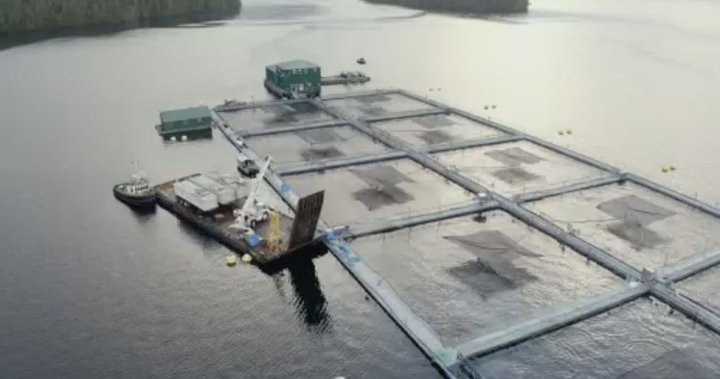
B.C. Indigenous coalition opposes Ottawa’s decision to shut down 15 salmon farms
Global News
The Coalition of First Nations for Finfish Stewardship said the decision not to renew the licences for the salmon farms is not “respecting the sovereign authority."
A B.C. Indigenous group has expressed “extreme disappointment” with the federal decision not to renew licences for 15 open-net Atlantic salmon farms around Discovery Islands.
The Coalition of First Nations for Finfish Stewardship said the decision not to renew the licences for the salmon farms is not “respecting the sovereign authority of the Laich-kwil-tach First Nations (the Wei Wai Kum and We Wai Kai) to decide if, when and how they want to operate aquaculture in their traditional waters.”
“(The) decision, unfortunately, feels beyond procedural unfairness after many months of meetings with the minister, her department, and DFO staff,” said Dallas Smith, a spokesperson for the coalition.
“The Wei Wai Kum and We Wai Kai First Nations sent a thoughtful proposal to DFO in November to re-issue some licences in their core territories. They put forward a cautionary approach to explore how and if finfish farming could be part of their Nations’ overall vision to manage their marine space. This decision to deny all licences in their territories has sent the Nations back to the drawing board in that regard.”
According to the coalition, the proposal described a “careful and staggered plan for the possible re-introduction of some fish farms” in the traditional waters to be led and overseen by the First Nations and their stewardship programs.”
The group is adamant the that these farms would serve as a critical piece to help the communities advance their holistic marine management plans.
“First Nations from the coast are trying to find their feet when it comes to reclaiming what was taken away from them by the federal government. Whether it’s creating marine protected areas or deciding whether they want to host fish farms, coastal Nations are trying to take back their inherent rights to manage their traditional waters,” Smith said.
“This was not about protecting the sector or the companies operating in it. This was about the sovereignty of the Laich-kwil-tach Nations and their right to decide for themselves whether salmon farming, or any other resource, is the right fit for their marine plans.











